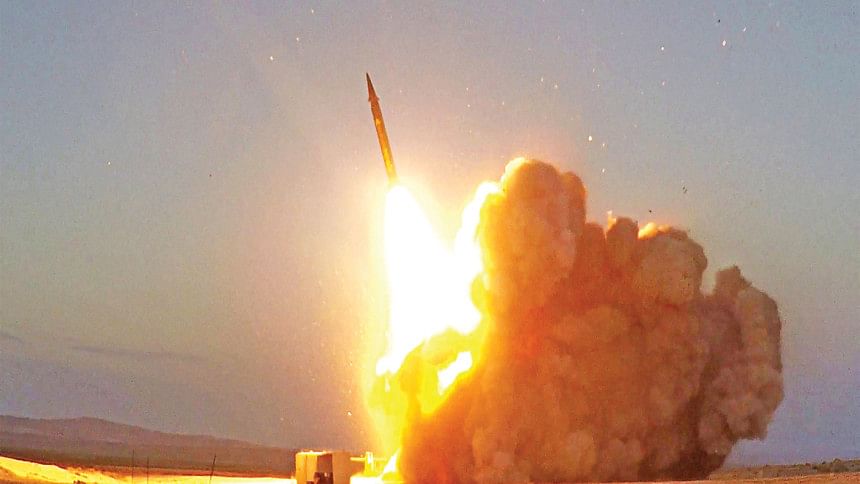US to trigger controversial ‘snapback’ mechanism

President Donald Trump announced Wednesday that Secretary of State Mike Pompeo will activate a controversial mechanism aimed at reimposing UN sanctions on Iran, escalating a row with European allies that has huge repercussions for the Iranian nuclear deal.
Pompeo was in New York yesterday to notify the United Nations Security Council that the US is triggering the so-called "snapback" procedure, which Britain, France and Germany say it doesn't have the right to do.
"It's a snapback, not uncommon," Trump told reporters, despite the contested measure having never been used before.
The move comes after the United States suffered a humiliating defeat at the Security Council last week when it failed to muster support for a resolution to extend a conventional arms embargo on Iran.
"Snapback" aims to restore all international sanctions against Iran that were lifted as part of the 2015 accord with Tehran that sought to prevent it from developing nuclear weapons.
Trump withdrew the US from the agreement, known officially as the Joint Comprehensive Plan of Action (JCPOA), in 2018 and introduced American sanctions on Iran as part of a "maximum pressure" campaign against the Iranian regime.
Despite pulling out of the deal, America claims that, as a "participant" of the original agreement, it has the power to unilaterally reimpose UN sanctions on Iran.
The "snapback" procedure is supposed to lead to the re-establishment of sanctions after 30 days, without the possibility of Russia or China wielding their vetoes.
Experts say the snapback threatens to plunge the Security Council into crisis.
"Most of the council will reject the US argument that it retains the right to trigger snapback despite leaving the JCPOA. They will write off this process as a sham," UN expert Richard Gowan told AFP.
"The real winners in this process will be China and Russia, who will argue that they are defending the UN from US unilateralism, while the Europeans distance themselves from Washington," added Gowan, who works at the International Crisis Group think-tank.
Meanwhile, Iran displayed a surface-to-surface ballistic missile yesterday that Defence Minister Amir Hatami said had a range of 1,400 kilometres and a new cruise missile, ignoring US demands that Tehran halt its missile programme. "The surface-to-surface missile, called martyr Qassem Soleimani, has a range of 1,400 km and the cruise missile, called martyr Abu Mahdi, has a range of over 1,000 km," Hatami said in a televised speech.

 For all latest news, follow The Daily Star's Google News channel.
For all latest news, follow The Daily Star's Google News channel. 



Comments